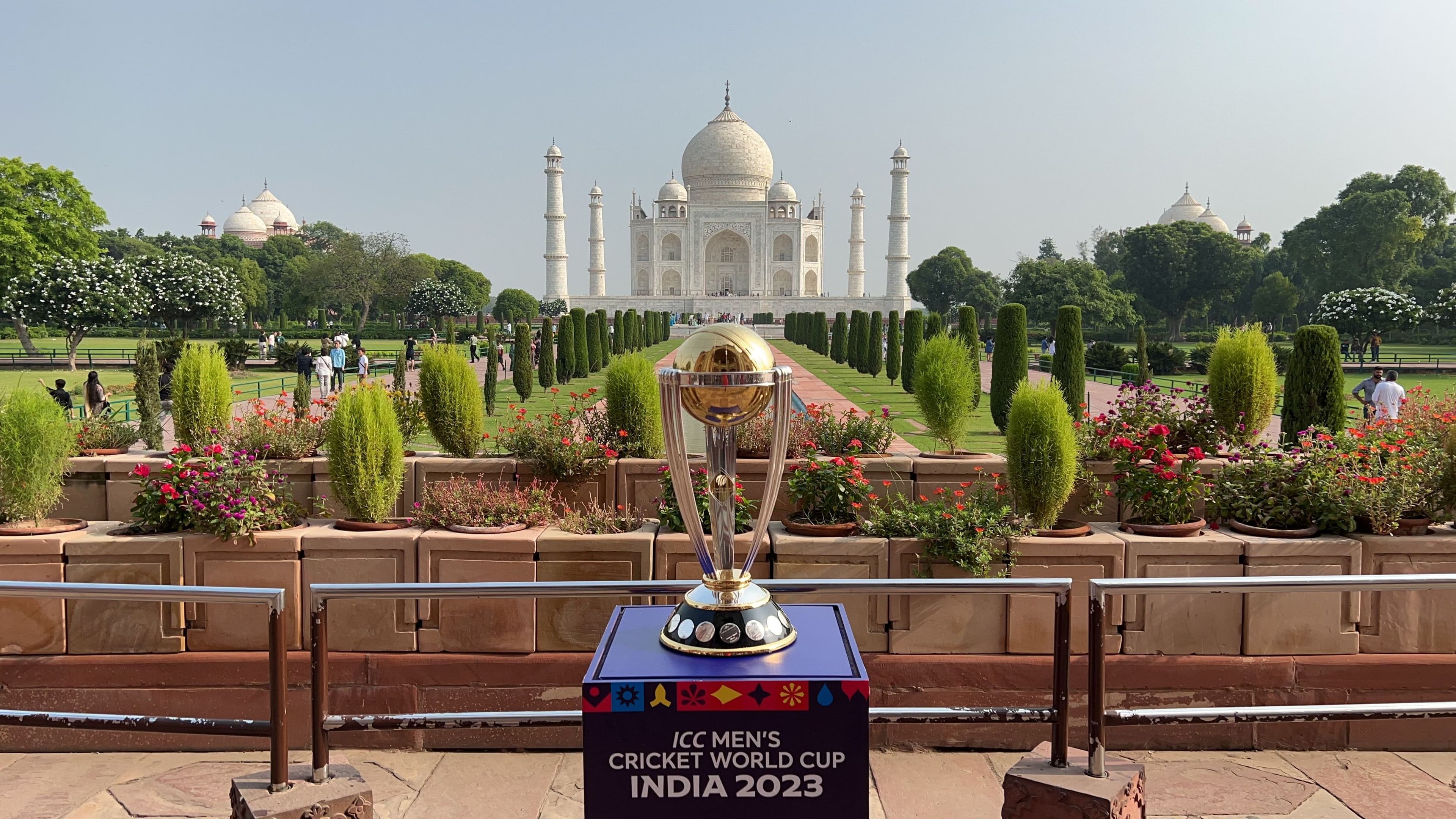Cricket
India vs Zimbabwe 1983 World Cup – the match which kept India alive in the tournament
Kapil Dev's unbeaten 175 helped India win the crucial match against Zimbabwe and went on to with the 1983 Cricket World Cup.

India Performance in 1983 World Cup
In 1983, India secured its first-ever title win at the Cricket World Cup. This win was not only a significant moment in the history of cricket but also a pivotal juncture in the nation's sporting history. In the 1983 World Cup final, India, led by Kapil Dev, defeated the West Indies, a dominant and feared cricketing force at the time. The win inspired generations of aspiring cricketers in India, and provided a significant boost to the development of cricket infrastructure in the country. The win also attracted sponsorship deals and increased viewership, and transformed cricket into a lucrative industry in India. Several years following this remarkable feat, the story of India's 1983 World Cup win was immortalized on the silver screen in a movie titled "1983."
India in 1983 World Cup, Match Results
INDIA IN 1983 WORLD CUP
MATCH RESULTS
| DATE | OPPONENT | VENUE | RESULT | MARGIN |
|---|---|---|---|---|
| 9 June | West Indies | Manchester | Won | by 34 runs |
| 11 June | Zimbabwe | Leicester | Won | by 5 wickets |
| 13 June | Australia | Nottingham | Lost | by 162 runs |
| 15 June | West Indies | The Oval | Lost | by 66 runs |
| 18 June | Zimbabwe | Tunbridge Wells | Won | by 31 runs |
| 20 June | Australia | Chelmsford | Won | by 118 runs |
| 22 June | England (SF) | Manchester | Won | by 6 wickets |
| 25 June | West Indies (Final) | Lords | Won | by 43 runs |
India vs Zimbabwe 1983 World Cup – a must-win match for India
India started their 1983 World Cup campaign with a 34-run win over the mighty West Indies, who had won the first two editions of the tournament. This was followed by a five-wicket win over Zimbabwe, a 162-run loss to Australia and a 66-run loss to West Indies.
After two back-to-back losses, the next match against Zimbabwe was a must-win. This encounter against Zimbabwe, in which India emerged victorious by 31 runs, played a pivotal role in shaping the destiny of the tournament and eventually taking the Indian team to the title. Zimbabwe, an associate member of the ICC at the time, were playing their first-ever World Cup.
Batting first, India had a disastrous start, losing five wickets for just 17 runs. Both openers, Sunil Gavaskar and S Srikkanth, were dismissed without scoring a run, while Mohinder Amarnath (5), Sandeep Patil (1) and Yashpal Sharma (9) scored just 15 runs combined. However, a sensational knock from skipper Kapil Dev changed the match in India’s favour. Dev came in to bat at number six when India were reeling at 17/5. He played a sensational innings, remaining unbeaten on 175, which was laced with 16 fours and six sixes. He was supported by wicketkeeper Syed Kirmani, who scored 24 off 56 balls.
India eventually posted a total of 266 for eight in 60 overs. In reply Zimbabwe were bowled out for 235. Madan Lal picked up three wickets, Roger Binny chipped in with two while Balwinder Sandhu, Kapil Dev and Mohinder Amarnath picked up a wicket each.
Most Runs in a World Cup Innings
MOST RUNS IN AN INNINGS
IN WORLD CUPS
| PLAYER | RUNS | OPPOSITION | GROUND | YEAR |
|---|---|---|---|---|
| M Guptill | 237* | WI | Wellington | 2015 |
| C Gayle | 215 | ZIM | Canberra | 2015 |
| G Kirsten | 188* | UAE | Rawalpindi | 1996 |
| S Gangulay | 183 | SL | Taunton | 1999 |
| V Richards | 181 | SL | Karachi | 1987 |
| D Warner | 178 | AFG | Perth | 2015 |
| K Dev | 175* | ZIM | Tunbridge Wells | 1983 |
| V Sehwag | 175 | BAN | Mirpur | 2011 |
| C Wishart | 172* | NAM | Harare | 2003 |
| G Turner | 171* | EAF | Birmingham | 1975 |
The unbeaten 175 is Kapil Dev’s highest individual score in ODIs, first ever ODI century for an India batter, and was also the highest individual ODI score at the time. Kapil Dev’s record was later broken by West Indies great Viv Richards in 1984 when he scored 189* against in England in Manchester. Furthermore, this innings is tied for the seventh-highest individual score in the history of the Cricket World Cup. The other player to score 175 in the World Cup is Virender Sehwag. His knock came in the 2011 World Cup against Bangladesh.
What makes Dev's innings even more extraordinary is the fact that he did not receive substantial support from the rest of the Indian batsmen during the innings. He stood resolute at one end, while wickets kept falling at the other.
Sunil Gavaskar said of Kapil Dev’s blockbuster knock while speaking on Aaj Tak "Kapil did not play any lofted drives till he reached 80. It was amazing to see him hit those sixes," Gavaskar added.
"As a player and as a commentator, never seen a better innings (than Kapil's 175*). The situation we were in…It was cold and the ball was moving. It looked like we would be bowled out for 70 or 80,”
Having won three of their first five matches, India found themselves in contention for a spot in the semi-finals. Their subsequent match, a face-off against Australia, resulted in a resounding win, with India successfully defending a total of 247, winning by a big margin of 118 runs. Noteworthy performances were delivered by Madan Lal and Roger Binny, both claiming four wickets apiece. With this win, India advanced to the semi-final, where they defeated England, before defeating West Indies in the final at Lord’s.
India v Zimbabwe 1983 World Cup Match Summary
MATCH SUMMARY: INDIA VS ZIMBABWE
TUNBRIDGE WELLS 1983 WORLD CUP
| INDIA | 266-8 | (60 OV) | ||
| KAPIL DEV | 175* | 138 | PETER RAWSON | 3-47 |
| SYED KIRMANI | 24 | 56 | KEVIN CURRAN | 3-65 |
| ROGER BINNY | 22 | 48 | JOHN TRAICOS | 1-45 |
| ZIMBABWE | 325-10 | (57 OC) | ||
| KEVIN CURRAN | 73 | 93 | MADAN LAN | 3-42 |
| ROBIN BROWN | 35 | 66 | ROGER BINNY | 2-45 |
| GRANT PATERSON | 23 | 35 | KAPIL DEV | 1-32 |
INDIA WON BY 31 RUNS
India at the World Cups – a flashback
India have competed in all the 12 ODI World Cups that have been played to date. Their second World Cup win came in 2011. Here’s how they’ve performer at the tournament since its inception in 1975.
1975 (England): India's debut in the inaugural edition of the World Cup was underwhelming. Led by Srinivas Venkatraghavan, India lost two of their three matches and were eliminated in the group stage.
1979 (England): India suffered yet another group stage exit after losing all their three matches under Venkatraghavan’s captaincy.
1983 (England): India won the World Cup under the captaincy of Kapil Dev, defeating the West Indies in the final.
1987 (India and Pakistan): India finished fourth after reaching the semi-finals, where they lost to England. The semi-final was played at Mumbai’s Wankhede Stadium. Kapil Dev was the captain.
1992 (Australia and New Zealand): India had a disappointing campaign and couldn't make it past the round-robin stage, finishing in seventh place. They were captained by Mohammad Azharuddin.
1996 (India, Pakistan, and Sri Lanka): Azharuddin-led India reached the semi-finals but lost to Sri Lanka.
1999 (England, Ireland, Netherlands, Scotland, Wales): India reached the Super Six stage but didn't make it to the semi-finals.
2003 (South Africa, Zimbabwe, and Kenya): India reached the final under the leadership of Sourav Ganguly but lost to Australia.
2007 (West Indies): India, under Rahul Dravid’s captaincy, had a disastrous campaign and was eliminated in the group stage.
2011 (India, Sri Lanka, and Bangladesh): India won their second World Cup, defeating Sri Lanka in the final under the captaincy of MS Dhoni.
2015 (Australia and New Zealand): India reached the semi-finals but lost to Australia.
2019 (England and Wales): India once again lost the semi-final, this time New Zealand.
India will be aiming to secure their third ODI World Cup title in 2023 under the captaincy of Rohit Sharma. With the tournament taking place on home soil, the expectations of cricket fans in India will be high.
Recommended Articles

Umaima Saeed is a professional sports writer whose articles have been featured in several leading websites. She writes long-form content on sports, particularly cricket. She has a penchant for telling human-interest stories. Umaima has contributed articles on cricket to more than a dozen publications, both in print and online.


